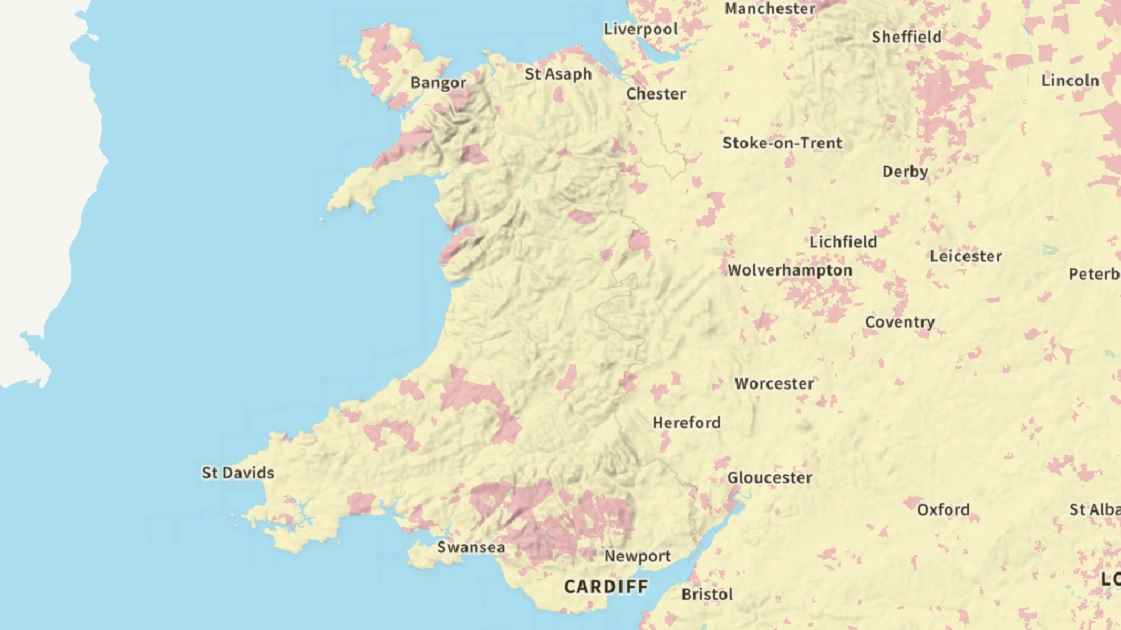New map shows parts of Wales most impacted by ‘catastrophic’ energy price hikes – check your own area

The parts of Wales that will be worst impacted by “catastrophic” soaring energy prices have been identified as part of new research by Friends of the Earth.
The environmental group has found that there are hundreds of energy crisis hotspots across Wales where communities are at greatest risk of serious financial hardship as a result of unaffordable energy costs.
The map that can be viewed here covers Wales and England, but parts of Wales are some of the worst affected. Blaenau Gwent is second on the list with 70.2% of neighbourhoods classed as energy crisis hotspots and Merthyr Tydfil fourth at 63.9%.
331 neighbourhoods are listed in total, with Caerphilly in 10th place and Rhondda Cynon Taf in 12th. The Vale of Glamorgan in 281st and Monmouthshire in 271st place are the least impacted in Wales.
Energy crisis hotspots are neighbourhoods where energy use is high and typical household income is below the national average. In many cases, energy use is high in these neighbourhoods because homes are poorly insulated, meaning they require more energy to remain warm.
A full list of the most impacted area can be downloaded here.
Mike Childs, head of science, policy and research at Friends of the Earth, said: “There’s no downplaying how catastrophic this and following winters will be for millions of people if energy bills rise as high as they’re predicted to, unless the government meaningfully intervenes.”
He added that UK Government intervention, “while vital, this is only a short-term solution”.
“The highest priority of all is fixing the UK’s leaky, inefficient housing stock, otherwise cash handouts will be required year on year,” he said.
“By rolling out a free programme of street-by-street energy efficiency measures, prioritising the most in-need neighbourhoods, we can help to bring bills down quickly, make homes warmer and slash Earth-warming emissions at the same time.”
‘Reference price’
On Thursday Prime Minister Liz Truss announced that the Government would guarantee that the average household will pay no more than £2,500 in its energy bills.
However, the guarantee is a maximum price per unit of gas and electricity, so households that consume more than the average will see their bills higher than that.
Energy regulator Ofgem has said it will continue to announce the cap on household energy prices, despite the Government saying it would guarantee lower bills for customers.
Ofgem said that it plans to still make the announcements every three months, as it continues to regulate how much energy suppliers can charge for their services.
Suppliers will then submit part of their regulated bill to each household, and the remainder to the Government.
ScottishPower chief executive Keith Anderson told PA: “This whole scheme is being introduced on the basis that the price cap remains and the methodology doesn’t change
“The price cap becomes the reference price as to what we charge.
“So the £2,500 that was announced gets converted into a unit cost and everyone will get the bill based on their usage.
“I then put a submission into the central system that takes that usage and the differential between the £2,500 unit cost, and the cap at £3,500, and I get a cheque back for that differential.”
He said that suppliers would continue buying and hedging energy in line with the way the price cap works.
In effect the price cap then becomes a cap which limits how much the Government will need to pay, rather than the amount that households must pay.
Support our Nation today
For the price of a cup of coffee a month you can help us create an independent, not-for-profit, national news service for the people of Wales, by the people of Wales.






In the US energy companies, local authorities and the federal government have been designing and funding energy saving measures for decades. The power companies say that it saves them billions in building new power stations and makes sense to give away energy consumption reduction measures like light bulbs and insulation.
The UK can’t be bothered.
Not sure if it is “can’t be bothered”. The Market Fundamentalist mindset does not allow for there being such a thing as Climate Breakdown, a functioning Society, etc. All it recognises is the “Soverign Individual” who, if rich enough, will not be at all bothered by any of these crises. Sadly, the current UK Government is run by Market Fundamentalists. Its odd really that the US is doing things better as they are the home of the Market Fundamentalist mindset.